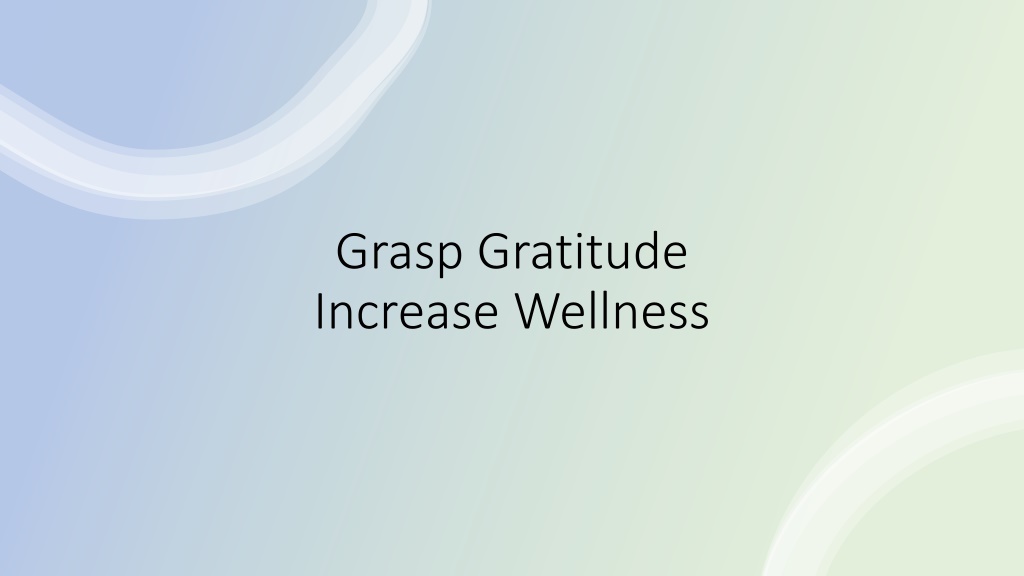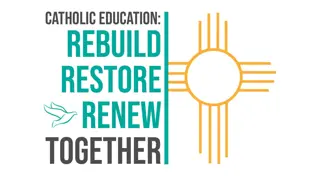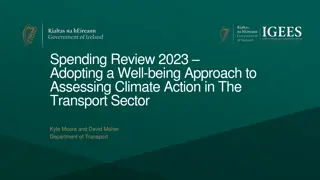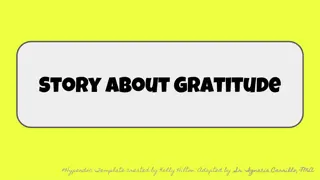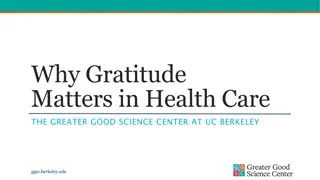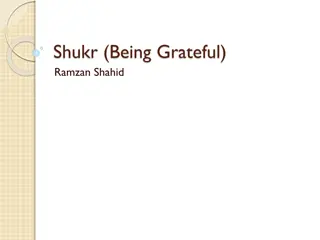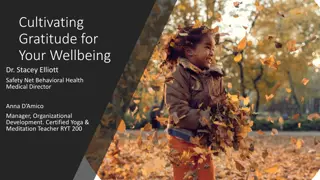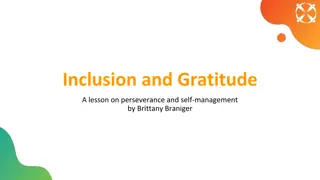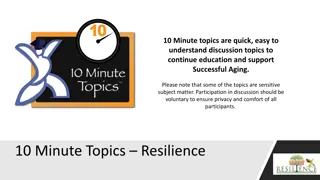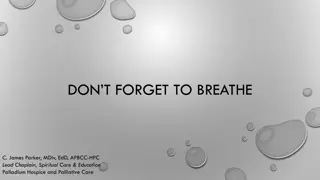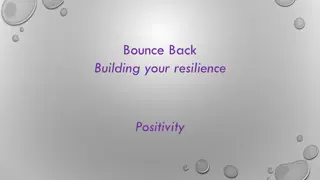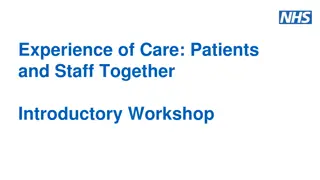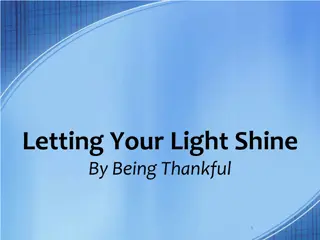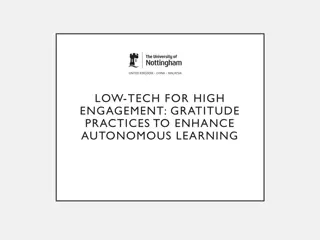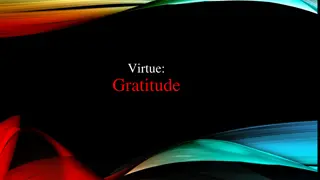Understanding the Power of Gratitude for Improved Well-being
Gratitude is a powerful positive emotion that can significantly impact our well-being. It involves being thankful for the things we have, acknowledging the good in our lives, and appreciating the seemingly ordinary blessings. Practicing gratitude not only makes us happier and less stressed but also fosters positive relationships and opens up new possibilities. Research shows that cultivating gratitude can lead to increased determination, attention, enthusiasm, and energy. Explore the transformative effects of gratitude and its importance in enhancing overall wellness.
Download Presentation

Please find below an Image/Link to download the presentation.
The content on the website is provided AS IS for your information and personal use only. It may not be sold, licensed, or shared on other websites without obtaining consent from the author. Download presentation by click this link. If you encounter any issues during the download, it is possible that the publisher has removed the file from their server.
E N D
Presentation Transcript
Grasp Gratitude Increase Wellness
Gratitude is one of many positive emotions. It's about focusing on what's good in our lives and being thankful for the things we have. Gratitude is pausing to notice and appreciate the things that we often take for granted, like having a place to live, food, clean water, friends, family, even computer access. It's taking a moment to reflect on how fortunate we are when something good happens whether it's a small thing or a big thing. We can use lots of words to describe feelings of gratitude: We might say we feel thankful, lucky, fortunate, humbled, or blessed. What Is Gratitude? What Is Gratitude?
Why Gratitude Why Gratitude Matters Matters Positive emotions open us up to more possibilities. They boost our ability to learn and make good decisions. Gratitude doesn't just feel good. Making a habit of gratitude can also be good for us. Brain research shows that positive emotions are good for our bodies, minds, and brains. Positive emotions balance out negative emotions. People who often feel grateful and appreciative are happier, less stressed, and less depressed. Gratitude is like a U-turn on complaining or thinking about what we don't have. One positive emotion often leads to another. When we feel grateful, we might also feel happy, calm, joyful, or loving. Gratitude can lead to positive actions. Your gratitude also can have a positive effect on someone else's actions. Thanking people can make it more likely they'll do a kindness again. Gratitude helps us build better relationships. When we feel and express heartfelt gratitude and appreciation to people in our lives, it creates loving bonds, builds trust, and helps you feel closer.
Effects of Gratitude in the classroom researchers assigned young adults to keep a daily journal of things they were grateful for. They assigned other groups to journal about things that annoyed them, or why they were better off than others. The young adults assigned to keep gratitude journals showed greater increases in determination, attention, enthusiasm and energy compared to the other groups. PowerofPositivity. (2018, September 22). Scientific Proof: Practicing Gratitude Every Day Can Change Your Life. Retrieved October 06, 2020, from https://www.powerofpositivity.com/gratitude-change-your-life/
Elementary https://www.youtube.com/watch?v=T5Umo80x9og https://www.youtube.com/watch?v=yA5Qpt1JRE4 https://www.youtube.com/watch?v=YeSdQmO51Ps Secondary https://www.youtube.com/watch?v=yBsPJJxOwmU Videos https://www.youtube.com/watch?v=U5lZBjWDR_c https://www.youtube.com/watch?v=GXy__kBVq1M Science of Gratitude https://www.youtube.com/watch?v=oHv6vTKD6lg https://www.youtube.com/watch?v=JMd1CcGZYwU
Boost Your Optimism Boost Your Optimism Seligman Survey A Adversity: Describe the event that happened. Leave out evaluations and judgements B Belief: Explain how adversity was interpreted. Not how you think it ought to be, but what your default belief/interpretation was. C - Consequences: Think about the feelings and actions that result from these beliefs. D - Disputation: Do you have any grounds to dispute these automatic reactions? E - Energization: This is the last step that's done when successful disputation occurs. Dr. Albert Ellis and Dr. Martin Seligman
Are You Optimistic or Pessimistic? https://www.seemypersonality .com/Optimism-Test#q1
